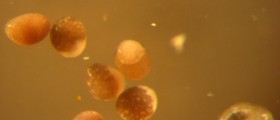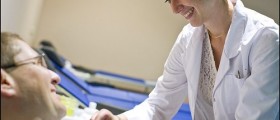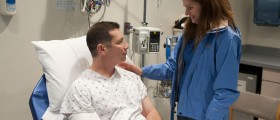
Women who wish to become egg donors need to be between the ages of 21 and 32, although women who have been accepted into an egg donation program usually can continue to undergo fertility cycles through age 35. A woman who donates her eggs will not "run out" of eggs so that she could not have children of her own. Every woman starts life with about 450 eggs, one or sometimes more eggs maturing at each ovulation throughout her reproductive life. In Virginia and most other states, only 12 to 15 eggs are collected at each egg donation, and a woman goes through no more than six fertility cycles (some assisted fertility centers only permit five) in a lifetime. This leaves about 350 other "chances" to conceive with her own eggs.
Because Virginia law and practice protect privacy, a great deal of descriptive information--but not information that identifies the donor--is collected to match donors with prospective parents. It may take days to months to find an appropriate match. While waiting to be matched to a donor, prospective egg donors continue to use contraception, although hormone-impregnated IUDs may not be acceptable. Once the match has been made, egg donors are usually required to take an oral contraceptive for about three weeks to establish a baseline of ovarian activity. They then enter a fertility cycle, taking some injections at a clinic, and then giving themselves Lupron injections at home, up to a date for harvesting eggs. In Virginia as anywhere else, the actual collection of eggs is standard. There are quick tests to ensure no sexually transmitted diseases were caught during fertility treatment, and then 12 to 15 eggs are collected through a hollow needle inserted through the wall of the vagina.
Because women are sedated during the procedure, there is usually no memory of the collection, and most women resume their normal day to day schedules the next day. For a week to a month, however, egg donors are susceptible to multiple births should they become pregnant, so they will need to refrain from unprotected heterosexual intercourse or use contraception. Virginia allows well-compensated and hassle-free egg donation. Especially in the Washington D.C. area, there are many centers allowing easy participation in egg donation programs.

















Your thoughts on this
Loading...